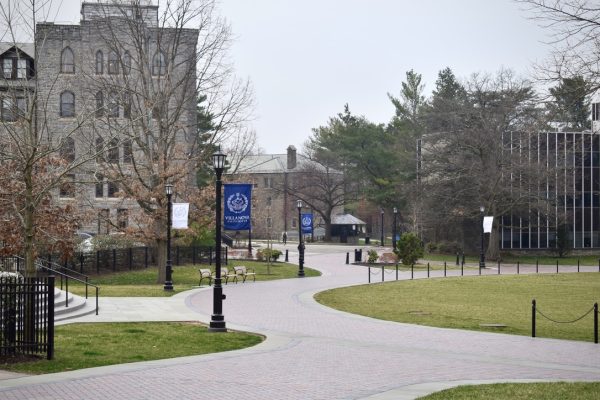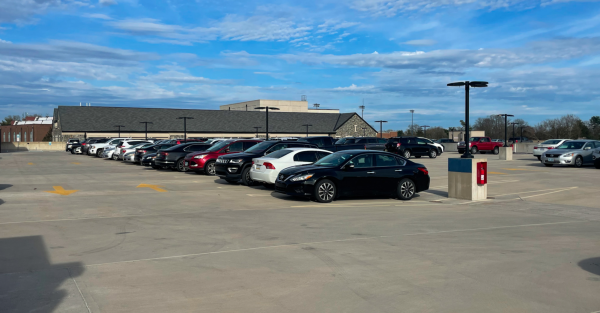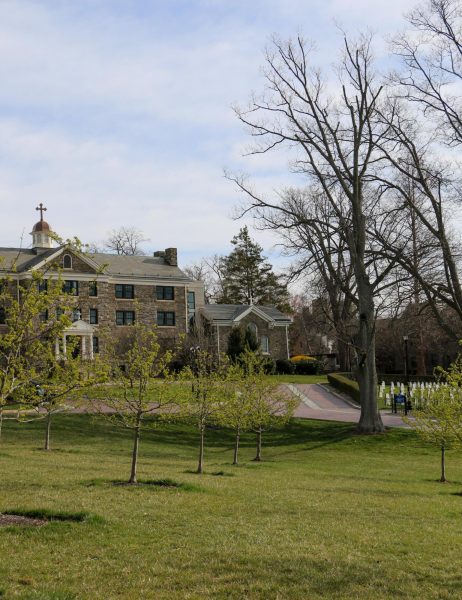Prejudice in the classroom, minorities can and will gain higher knowledge

Prejudice in the classroom, minorities can and will gain higher knowledge
October 3, 2017
A white male once said that “If you are just smart and not any type of minority, you have like, no shot.” Really? Are we still expressing such an opinion in 2017? He was referencing the idea that minorities have an easier chance of getting into Ivy League schools because of their minority status. The young man made the assumption that minorities could not get into a reputable school based on their own merit. I couldn’t help but think that he transferred the environment of the plantation into a classroom, where white superiority was designated as the norm. The plantation served as a hierarchy that placed an order within the estate. This hierarchy is definitely seen in the classrooms of America today, especially within college classrooms. A college classroom is a place where intellectuals should gather to discuss new and inclusive ideas. However, it seems to be where the Antebellum South has reared its head once again. Kai Davis, a writer and performer from Philadelphia wrote and performed the poem,“F**k I Look Like,” describing what it is like to be a minority in the classroom, specifically a black student. She mentioned the struggle of being misrepresented, not feeling welcome, not reading black authors, colorism and even having ideas shut down due to the color of one’s skin. I am so glad that she highlights these issues that silently plague our classrooms from high school to higher education.
The U.S News and World Report article, “African-American Students Lagging Far Behind” by Lauren Camera, mentions that African-American students are falling behind in educational progress. The 2015 National Assessment of Educational Progress found that only 16 percent of eighth-grade black students were proficient in reading and only 13 percent were proficient in math. Perhaps this is because black students are not encouraged in the same way that white students are. The bar is set so low for minorities that many, if not all, have to work much harder just to be noticed or reach the same level as their white counterparts. The opportunities are not available to enable many black students to succeed, and this leads to underachievement. Why is it that so often students only ever hear or read an excerpt from a black author during Black History Month? Authors such as Malcolm X, Maya Angelou and Chimamanda Ngozi Adichie need to be included in the throng of English education. It is as though we see these black authors as inferior or subpar compared to the likes of William Shakespeare, Edgar Allen Poe and Mark Twain. It is baffling how students who are not of a minority background can act as if those who are minorities do not belong in the same classroom. Simply because minorities were not in formal classrooms decades ago does not mean that they were not learning. The classroom has become a place where those with darker skin are seen as unintelligent because of the slang they use or the way in which they speak. Education is not about vernacular, but rather about learning from one another and broadening one’s view through knowledge. Those with darker skin now have to “act white” to have their points considered. What does it even mean to act white? This means that minorities should participate in class, answer questions, speak without using slang and do their homework. All of which should not be a white thing, but because 400 years ago, black people were told not to read or permitted to attend school. Now, black students are telling themselves and others not to participate in education. It’s as if students have associated intelligence with being a white trait. This just brings the idea of self-hate into the classroom because many black students feel as though they cannot achieve educational excellence.
I want us to look at what is really happening in America’s classrooms. It should not come as a surprise that prejudice is found within the classroom because we do not live in a post-racial society. Kids will not go to class if they believe that they are not worth educating. Too often, minority groups have little access and resources to credentialed educators, quality materials and funding to ensure a healthy educational career. Too often, I hear people opining that children of minority status are lazy and not motivated enough, but how motivated can you be if certain courses are not offered, or resources have been cut back or worse, the educators are under-qualified. It’s not that black students or Latino students, in particular, don’t care about school, it is the fact that for so long they have been exposed to the stereotypes of this demographic of not graduating from school and they play into the stereotype. It is not a white trait to be intelligent. However, I find that in higher education this idea is especially prevalent. I want black students to stop acting as if opportunities are not for them. It is not rare to hear surprise or astonishment in someone’s voice when a black student achieves academically in any capacity. Associating blackness with intelligence is not a recent phenomenon that is permeating America’s schools. However, it is viewed as a rarity when in reality it is not. Black students have perpetuated this self-hate onto one another and believe that acting a certain way in the classroom could be seen as promoting whiteness. Let’s look at the real problem of why the classroom has become the plantation. It is apparent that there is a fear of minorities gaining a scholarly education. This fear stems from the loss of power that will occur with the knowledge that is gained from education. Suddenly, white power will not be the ultimate power, and this change causes a disturbance. What is surprising is that students in the majority do not even realize that this is the case. Students and educators alike have become so rooted in the belief that blackness equates stupidity. However, American students need to realize that America is no longer enclosed in a plantation and that those of minority status can and will gain higher knowledge and achievement as history has shown, no matter the obstacles.





